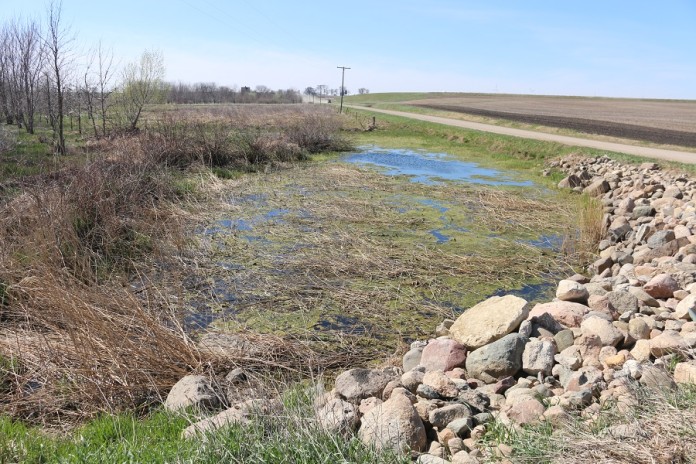To the editor:
I was invited to speak recently at a farming conference in Vermont. I learned that the state is implementing a new water quality regulatory program that will place many restrictions on farmers. Vermont farmers are not happy.
In fact, regulation of agriculture to improve water quality is under consideration — or in process — all across the country because voluntary programs have proven to be ineffective.
Nevertheless, many farm organizations continue to fight all regulation of agriculture and staunchly insist that voluntary actions by farmers will solve our water quality problems, in spite of all evidence to the contrary.
It’s time for Iowa farm organizations to face reality and become proactive in helping create a regulatory program that will work for farmers.
Otherwise, a regulatory hammer will come down on us, and all Iowa farmers will become saddled with a rigid regulatory program that will be too inflexible to work well across the variety of farming conditions in Iowa. That is already happening in Vermont and in states bordering the Chesapeake Bay.
A common-sense solution to our water quality problems is a flexible regulatory program that would give farmers the ability to choose which practices to use on their own farms, as long as each farm meets water quality standards. The standards would be based on what is needed in the aggregate to achieve the statewide goals of the Iowa Nutrient Reduction Strategy.
The model for a flexible regulatory program is soil conservation plans, which are already required of farmers who receive federal crop subsidies. Soil conservation plans allow farmers to choose practices that work on their own farms, as long as the farm meets soil erosion standards. Likewise, water quality plans would allow farmers to choose practices that work on their own farms, as long as the farm meets water quality standards for nitrogen and phosphorus.
Several alternative proposals are being floated for mechanisms to raise money to fund water quality improvements. For example, a recent proposal suggests that a tax be put on agricultural commodities to raise money to fund the adoption of water quality practices by farmers. There are two problems with that type of approach:
- All farmers would be taxed whether they are already taking sufficient measures to protect water quality or not, and
- The money would be used to try to bribe farmers to adopt water quality practices, instead of requiring them to do so.
Experience tells us that many farmers will not participate regardless of payments, and many farmers will stop using conservation practices as soon as funding ends. We have invested billions of dollars in conservation and water quality programs, and our water quality has continued to deteriorate. History informs us that the likelihood of achieving any real progress in improving our water quality is minimal with voluntary programs.
A sure solution is to require every farm to put in place a water quality plan that specifically addresses the water quality concerns on each farm, allowing farmers to choose from among practices that have been scientifically demonstrated as efficacious, and requiring farm plans to meet minimum water quality standards. That kind of flexible regulatory program would work best for farmers and would assure us that our water quality would actually improve.
Francis Thicke
Fairfield
















